Many times, we have heard the phrase “God’s prerogative” or “something is solely the prerogative of God.” What exactly does this mean, how does it operate, and what should be our disposition to God’s prerogative? This and many more we are going to find out as we study the word of God together in this article.
The word ‘prerogative’ according to the dictionary, is a right or privilege exclusive to a particular individual or class. For example, it is the prerogative of the president of the Federal Republic of Nigeria to appoint his cabinet ministers. Also, the president has prerogative power to pardon anyone who has been sentenced to imprisonment. This is usually referred to as “The President’s Prerogative of Mercy.”
What’s God’s Prerogative? God’s prerogative is God’s exclusive right and power to do certain things and not do certain things based on His preordination and election. God’s prerogative also reveals that God has the exclusive right to do whatever He wills with us just as a potter has power over the clay. If you read Isaiah 45:9-10, the Bible says: “Woe to him who strives with his Maker! Let the potsherd strive with the potsherds of the earth! Shall the clay say to him who forms it, ‘What are you making?’ Or shall your handiwork say, ‘He has no hands’? 10 Woe to him who says to his father, ‘What are you begetting?’ Or to the woman, ‘What have you brought forth?’”
HOW DOES GOD’S PREROGATIVE OPERATES?
God’s prerogative in most times and occasions, operates on the basis of God’s preordination and election, and not on any man’s calculation. In explaining how God’s prerogative operates, I want us to examine a few case studies in the Bible, beginning from the story of Esau and Jacob. Let us begin our observation from the book of Genesis 25:19-28, the Bible says:
19 This is the genealogy of Isaac, Abraham’s son. Abraham begot Isaac. 20 Isaac was forty years old when he took Rebekah as wife, the daughter of Bethuel the Syrian of Padan Aram, the sister of Laban the Syrian. 21 Now Isaac pleaded with the Lord for his wife, because she was barren; and the Lord granted his plea, and Rebekah his wife conceived. 22 But the children struggled together within her; and she said, “If all is well, why am I like this?” So, she went to inquire of the Lord. 23 And the Lord said to her: “Two nations are in your womb, Two peoples shall be separated from your body; One people shall be stronger than the other, And the older shall serve the younger.” 24 So when her days were fulfilled for her to give birth, indeed there were twins in her womb. 25 And the first came out red. He was like a hairy garment all over; so, they called his name Esau. 26 Afterward his brother came out, and his hand took hold of Esau’s heel; so, his name was called Jacob. Isaac was sixty years old when she bore them. 27 So the boys grew. And Esau was a skillful hunter, a man of the field; but Jacob was a mild man, dwelling in tents. 28 And Isaac loved Esau because he ate of his game, but Rebekah loved Jacob.
From that story, we saw that God already told Rebekah: one of the boys coming from your womb will be stronger than the other one, the older shall serve the younger. This was God’s preordination from the beginning. There was nothing Rebekah could do about it, there was nothing Isaac also could do about it. God have spoken and so shall His words be. Even though Isaac loved Esau, and Rebekah loved Jacob, it wouldn’t still alter what God has said concerning the destinies of the two sons. This is to buttress the point that god’s prerogative operates on the basis of God’s preordination and election, and not on any man’s calculation.
Malachi 3:1-3
The burden of the word of the Lord to Israel by Malachi. 2 “I have loved you,” says the Lord. “Yet you say, ‘In what way have You loved us?’ Was not Esau Jacob’s brother?”
Says the Lord. “Yet Jacob I have loved; 3 But Esau I have hated, and laid waste his mountains and his heritage for the jackals of the wilderness.”
Let us start with a simple question based on what we just read in this place: Does God have the capacity to hate humans? We have read in the Scriptures that God hates sin, God hates wickedness, God hates pride, but does God have the wherewithal to hate humans? Because if God claims He hates Esau, as revealed to us in this Scripture, how come God still blessed him with all that he had and possessed?
Genesis 27:30-40
“Now it happened, as soon as Isaac had finished blessing Jacob, and Jacob had scarcely gone out from the presence of Isaac his father, that Esau his brother came in from his hunting. 31 He also had made savory food, and brought it to his father, and said to his father, “Let my father arise and eat of his son’s game, that your soul may bless me.” 32 And his father Isaac said to him, “Who are you?” So he said, “I am your son, your firstborn, Esau.” 33 Then Isaac trembled exceedingly, and said, “Who? Where is the one who hunted game and brought it to me? I ate all of it before you came, and I have blessed him—and indeed he shall be blessed.” 34 When Esau heard the words of his father, he cried with an exceedingly great and bitter cry, and said to his father, “Bless me—me also, O my father!” 35 But he said, “Your brother came with deceit and has taken away your blessing.” 36 And Esau said, “Is he not rightly named Jacob? For he has supplanted me these two times. He took away my birthright, and now look, he has taken away my blessing!” And he said, “Have you not reserved a blessing for me?” 37 Then Isaac answered and said to Esau, “Indeed I have made him your master, and all his brethren I have given to him as servants; with grain and wine I have sustained him. What shall I do now for you, my son?” 38 And Esau said to his father, “Have you only one blessing, my father? Bless me—me also, O my father!” And Esau lifted up his voice and wept. 39 Then Isaac his father answered and said to him: “Behold, your dwelling shall be of the fatness of the earth, And of the dew of heaven from above. 40 By your sword you shall live, And you shall serve your brother; And it shall come to pass, when you become restless, That you shall break his yoke from your neck.”
With this blessing pronounced on Esau by his father, he went on to become a great and mighty man to the point that when Jacob his brother met him again after several years, he began to tremble at his appearance.
Genesis 33:1-9
“Now Jacob lifted his eyes and looked, and there, Esau was coming, and with him were four hundred men. So, he divided the children among Leah, Rachel, and the two maidservants. 2 And he put the maidservants and their children in front, Leah and her children behind, and Rachel and Joseph last. 3 Then he crossed over before them and bowed himself to the ground seven times, until he came near to his brother. 4 But Esau ran to meet him, and embraced him, and fell on his neck and kissed him, and they wept. 5 And he lifted his eyes and saw the women and children, and said, “Who are these with you?” So, he said, “The children whom God has graciously given your servant.” 6 Then the maidservants came near, they and their children, and bowed down. 7 And Leah also came near with her children, and they bowed down. Afterward Joseph and Rachel came near, and they bowed down. 8 Then Esau said, “What do you mean by all this company which I met?” And he said, “These are to find favor in the sight of my lord.” 9 But Esau said, “I have enough, my brother; keep what you have for yourself.”
So, the question then is: Would God hates a man and still blessed him that much? What exactly was prophet Malachi trying to convey to us in that Old Testament Scripture that is a bit confusing to our human hearing? The apostle Paul by God’s revelation helped us to understand it in his letter to Rome in Romans 9:6-13. The Bible says:
Romans 9:6-13
But it is not that the word of God has taken no effect. For they are not all Israel who are of Israel, 7 nor are they all children because they are the seed of Abraham; but, “In Isaac your seed shall be called.” 8 That is, those who are the children of the flesh, these are not the children of God; but the children of the promise are counted as the seed. 9 For this is the word of promise: “At this time I will come and Sarah shall have a son.” 10 And not only this, but when Rebecca also had conceived by one man, even by our father Isaac 11 (for the children not yet being born, nor having done any good or evil, that the purpose of God according to election might stand, not of works but of Him who calls), 12 it was said to her, “The older shall serve the younger.” 13 As it is written, “Jacob I have loved, but Esau I have hated.”
Now this is the point: the blessing of Abraham was passed to Isaac and from Isaac, by natural succession and order of birth, it was supposed to go to Esau, who happens to be the first born. But God said, NO! Because of my preordination and election, I God, chose Jacob over Esau. So, what the word ‘hate’ there actually means is God’s preference for Jacob over Esau, even though he was the first born. Simple! God wouldn’t say He hates someone, that would be contradicting His stance that He is a God that is love personified.
GOD’S PREROGATIVE HARDENED PHARAOH’S HEART
Romans 9:14-27
“What shall we say then? Is there unrighteousness with God? Certainly not! 15 For He says to Moses, “I will have mercy on whomever I will have mercy, and I will have compassion on whomever I will have compassion.” 16 So then it is not of him who wills, nor of him who runs, but of God who shows mercy. 17 For the Scripture says to the Pharaoh, “For this very purpose I have raised you up, that I may show My power in you, and that My name may be declared in all the earth.”
From here, it can be deduced that God’s prerogative chose the Pharaoh of that dispensation of the children of Israel to show His power through him. Now, there was nothing Pharaoh could do about it. It was God’s preordination and election that the Pharaoh’s heart would be hardened and through him, the children of Israel would witness the mighty power of God. Did we get that?
18 Therefore He has mercy on whom He wills, and whom He wills He hardens. 19 You will say to me then, “Why does He still find fault? For who has resisted His will?” 20 But indeed, O man, who are you to reply against God? Will the thing formed say to him who formed it, “Why have you made me like this?” 21 Does not the potter have power over the clay, from the same lump to make one vessel for honor and another for dishonor? 22 What if God, wanting to show His wrath and to make His power known, endured with much longsuffering the vessels of wrath prepared for destruction, 23 and that He might make known the riches of His glory on the vessels of mercy, which He had prepared beforehand for glory, 24 even us whom He called, not of the Jews only, but also of the Gentiles? 25 As He says also in Hosea: “I will call them My people, who were not My people, and her beloved, who was not beloved.” 26 “And it shall come to pass in the place where it was said to them, ‘You are not My people,’ There they shall be called sons of the living God.” 27 Isaiah also cries out concerning Israel: “Though the number of the children of Israel be as the sand of the sea, The remnant will be saved.
WHAT SHOULD BE OUR DISPOSITION TO GOD’S PREROGATIVE?
Now that we have understood that God’s prerogative is God’s exclusive right to do and undo according to His preordination and election, what then should be our disposition to it?
(1). God sits on His throne and He does what He pleases. God is SOVEREIGN and He is not accountable to any man. Only God is therefore accountable to God. It is therefore not in man’s place to question God or ask Him why He does what He does. What God does or didn’t do is His prerogative. The only thing man can do is to submit to God’s Sovereign power. Isaiah 46:8-11 says:
“Remember this, and show yourselves men;
Recall to mind, O you transgressors.
9 Remember the former things of old,
For I am God, and there is no other;
I am God, and there is none like Me,
10 Declaring the end from the beginning,
And from ancient times things that are not yet done,
Saying, ‘My counsel shall stand,
And I will do all My pleasure,’
11 Calling a bird of prey from the east,
The man who executes My counsel, from a far country.
Indeed I have spoken it;
I will also bring it to pass.
I have purposed it;
I will also do it.
(2) God’s will for our individual lives is God’s prerogative and it is therefore unchanging. It is either we stick with doing God’s will or God finds someone else who would do it if we refuse to cooperate with Him. Hebrews 6:17-18 (AMP) says:
In the same way God, in His desire to show to the heirs of the promise the unchangeable nature of His purpose, intervened and guaranteed it with an oath, 18 so that by two unchangeable things [His promise and His oath] in which it is impossible for God to lie, we who have fled [to Him] for refuge would have strong encouragement and indwelling strength to hold tightly to the hope set before us.
May the Lord help us all!
Thanks for the gift of your time, Obayomi Abiola Benjamin!
Feel free to share your thoughts or testimony in the comment box below. I promise to respond as soon as possible!

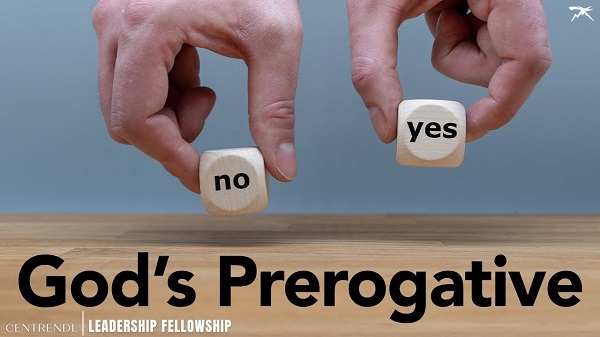








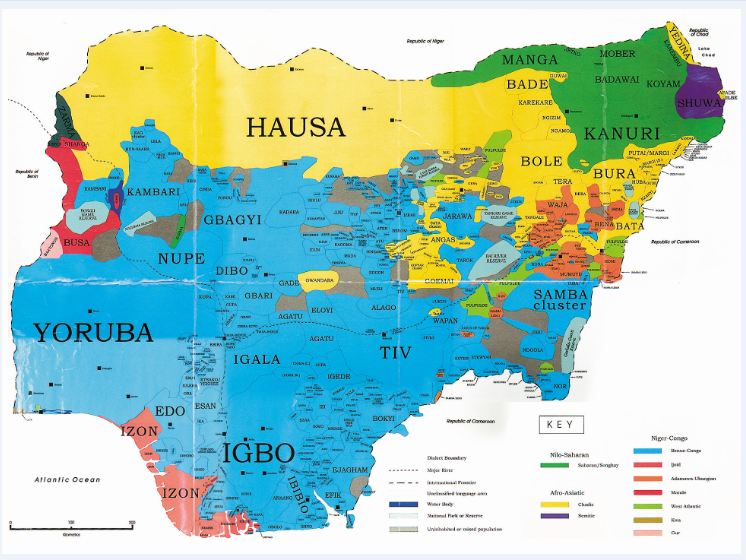
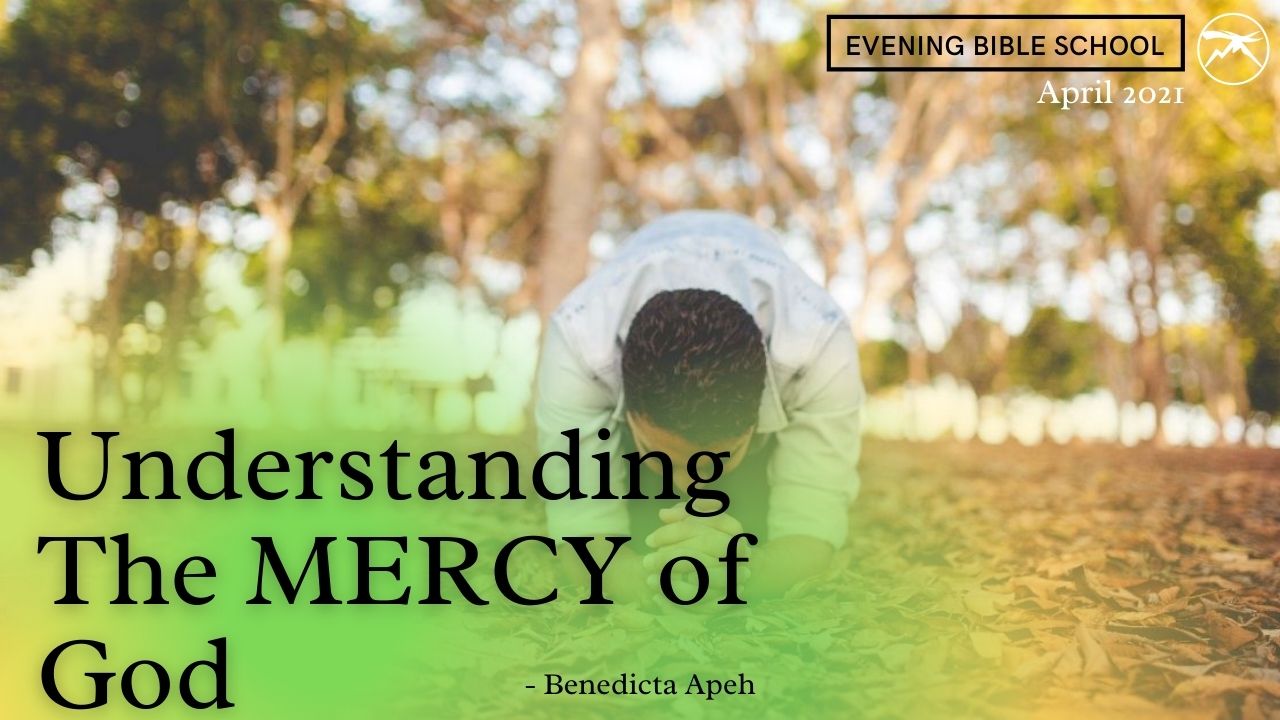
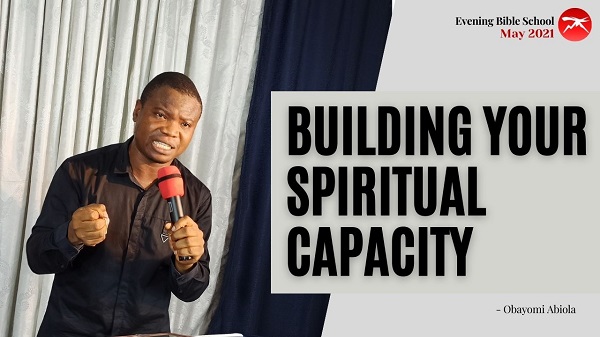









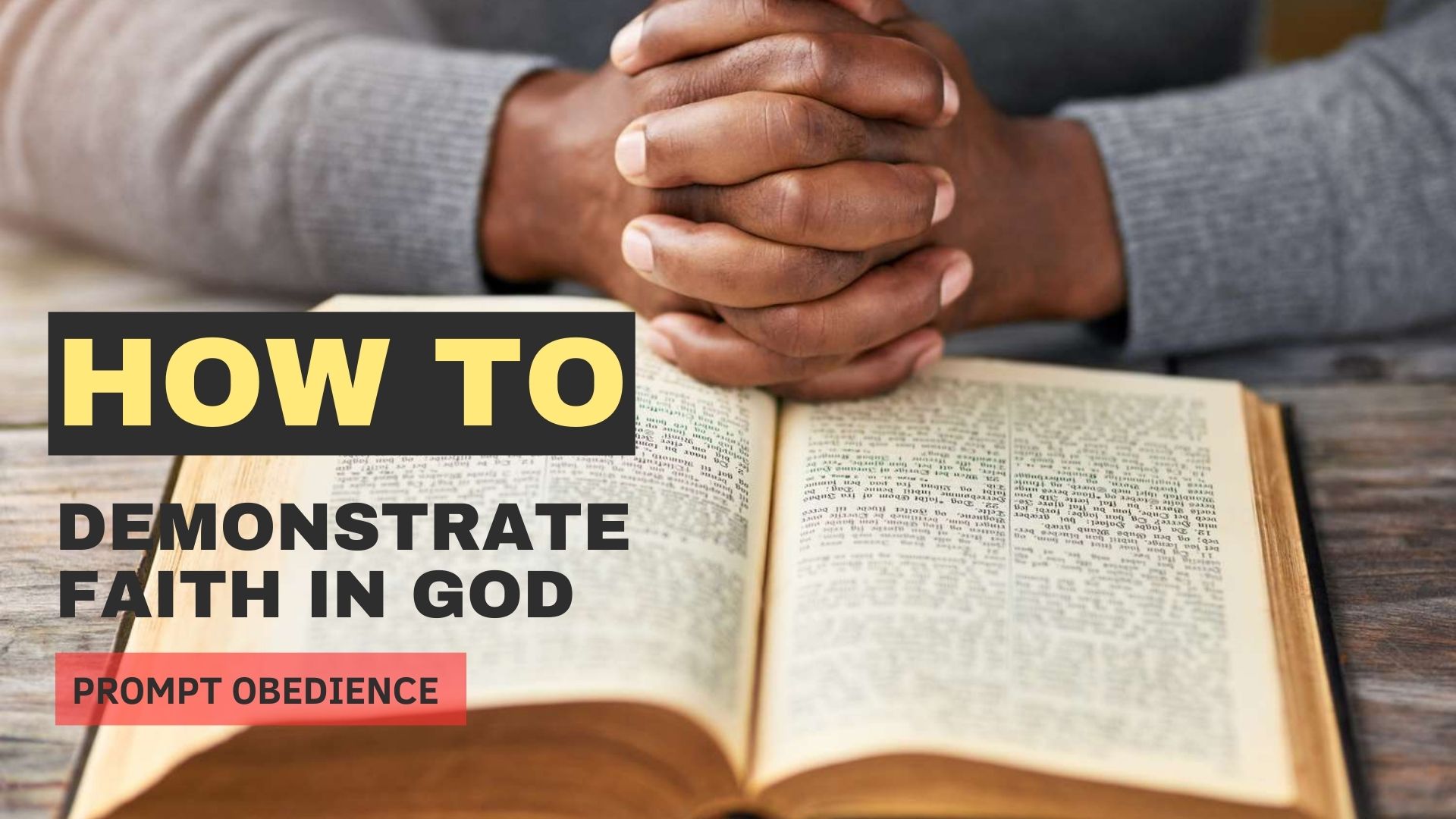






















What Do You Think About This Article? Share Your Comment
Please login to post a comment!